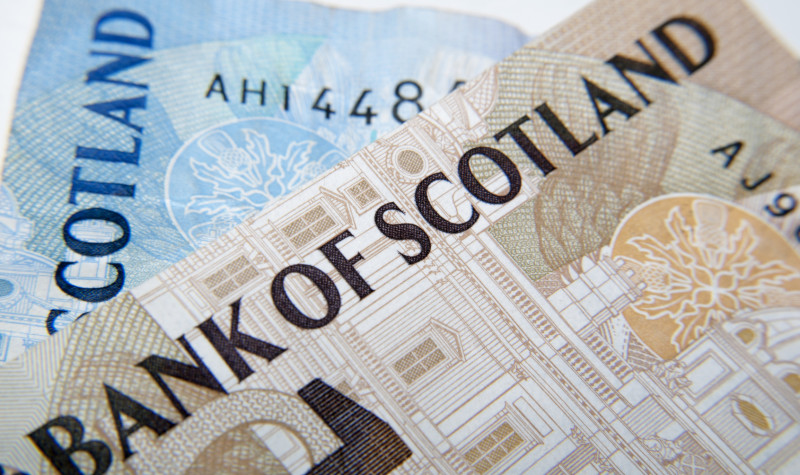Banknotes, Shop Closures, Jeremy And Sarah

Watch Out For Higher Oil Prices Again
The heating-up of the ‘at sea’ antics of Israel’s neighbours, as they attack by drones and missiles various freighters and tankers, as they travail across the waters close to Israel’s shores is not good news.
The Houthis, the Iranian-backed rebels in the Yemen, are making sailing towards the Suez Canal an almost ‘no-go zone’, which results in both freight and gas-carrying vessels re-routing around the Cape, instead of getting entangled within the conflict.
That means added costs of passing through the 193 km long canal are shooting through the roof – for instance, just the insurance of a tanker making such a trip is up from $20,000 to a massive $120,000 per voyage.
The switch around The Cape of Good Hope means that such journeys add another 3,500 miles to the total, which inevitably adds to the time being taken.
Already we know that nearly 400 ships have re-routed due to the new pressures, while BP has suspended the Red Sea as one of its chosen routes.
It is inevitable that not only the price of oil and gas at the pumps will increase in reflection, but so too the constituents of all other freight now missing out on the shorter and quicker Suez Canal route, which in turn could add to all kinds of supply shortages.
What would Ferdinand de Lesseps say if he was alive today?
Cost Of Credit Going A Lot Higher Drives More Use Of Cash
Did you know that the use of cash in shops is a minimal figure – it is said that some £11 out of every £100 spent is in coins or notes.
However, just when we thought actual cash was becoming only of historic ‘note’, out comes the fact that inflation has actually helped to boost the demand for more banknotes.
Sounding like an observer on the inflationary results of some runaway South American or African nation’s currency, Clive Vacher, the Chief Executive of De La Rue, the world’s leading banknote printer, is reported as having said that:
“Inflation is helpful in banknote demand.
The money in your pocket is worth less, so you need more banknotes, or you need a new higher value denomination, both of which are good for demand.”
Despite the longer-term trend for a downturn in note usage, due to the increase in debit and credit card transactions, the printers have been seeing a boost for cash as rising prices prompt more note printing.
It is apparent that central banks had let their in-house banknote reserves reduce following Covid.
Subsequently De La Rue has experienced a big bounce in note demand since last September, not just from the UK but also from the central banks of other countries that it supplies.
Believe it or not, the group, which prints notes for about 30% of the world, is still loss-making.
Retail Sector Woes Continue To Pile Up
The Centre for Retail Research, in its latest report, states that the cost-of-living crisis, inflation and the increases in interest rates have all led to consumers tightening their belts and reducing their retail spend.
Inevitably that will bring about an increase in the trend of retail closures hitting the UK marketplace.
In the last five years some 71,322 shops are reported to have been closed, including those of several major multiple operators.
In the last year alone, it is suggested that another 10,500 town centre premises have ceased to be in business.
That in turn hits the job security of some 120,000 employees.
Surely Basic Economics Comes Into Play?
If you build more roads, even repair potholes, create better infrastructure across the country, allow more houses to be built, etc etc it is inevitable that those employed in such construction will have more funds in their pockets to buy more goods – and thus it goes on.
Yes, basic Government-controlled economics.
Help to create more jobs, and more money gets spent, and more goods are bought which in turn drives more consumer demand for even more products.
Sitting on the rich incoming from taxes etc does not help to feed the economy if it is not recirculated.
The question is whether Hunt and his team will realise this enough by 6th March.
Well Done Sarah
I was pleasantly surprised to see that Sarah Breeden, a deputy Governor at the Bank of England, reckons that the high rate of inflation in the UK is too costly to ignore.
She has joined other policymakers in realising that lower interest rates should not be lauded, but instead should be blocked until the economy has a better feel.
Inflation is still endemic and price rises are continuing, despite the falseness created by the lowering Consumer Price Index figures.
And, of course, the Red Sea conflict just adds more price pressures with which to contend in 2024.
If you build more roads, even repair potholes, create better infrastructure across the country, allow more houses to be built, etc etc it is inevitable that those employed in such construction will have more funds in their pockets to buy more goods. If they then send a high proportion out of the country in exchange for electronic toys, booze etc and also take a large amount to foreign countries for holidays then the country will have less money and therefore become poorer. If the money is used to create jobs which export goods and services or expand tourism then the country will become richer.
Has anyone worked out how much cash is floating around the Economy due to the amount of drugs in use.. It’s never been higher, which is bound to increase the amount of cash in use. If there were no drugs. I bet the amount in cash in the Economy would drop to 1-2%